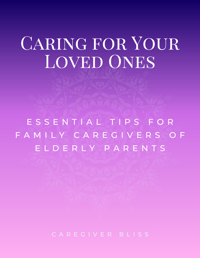Exploring Old People Smell: Insights and Solutions

As we grow older, our bodies undergo various changes, some of which are more noticeable than others. One common issue that many people notice, especially when spending time with elderly parents or relatives, is what is often referred to as "old people smell". This distinct scent can be puzzling and sometimes unpleasant, but what exactly causes it, and is there anything that can be done to address it?
Unveiling the Mystery Behind the Odor
The "old people smell" is a somewhat elusive phenomenon that has been the subject of curiosity and speculation for many years. It's often described as a musty or stale smell that seems to emanate from elderly individuals, particularly those in their later years. While it's commonly associated with aging, the exact cause of this odor is not entirely understood.
One possible explanation is changes in the skin as we age. As we grow older, our skin tends to become thinner and drier, which can contribute to an increase in the production of certain compounds that give off a distinct smell. Additionally, changes in hormonal levels and metabolism can also play a role in altering body odor.
Another factor that may contribute to the "old people smell" is the natural buildup of bacteria on the skin. As we age, the balance of bacteria on our skin can shift, leading to the proliferation of certain types of bacteria that produce odorous compounds.
Furthermore, lifestyle factors such as diet, hygiene practices, and underlying health conditions can all influence body odor, including the characteristic scent associated with aging.
Addressing the Issue with Sensitivity
While "old people smell" may be a natural part of the aging process, it can still be a sensitive topic to broach, particularly when it concerns elderly parents or relatives. Here are some tips for addressing the issue with care and sensitivity:
- Approach with Empathy: It's important to approach the topic with empathy and understanding. Aging can be a challenging time, and discussing personal hygiene can be embarrassing for some individuals. Be mindful of your parent's feelings and reassure them that you're coming from a place of concern for their well-being.
- Encourage Good Hygiene Practices: Gently encourage your elderly parents to maintain good hygiene practices, such as regular bathing or showering, using deodorant, and laundering clothes frequently. Offer to assist them if necessary or provide resources that can make these tasks easier for them to manage.
- Address Underlying Health Issues: Sometimes, changes in body odor can be a sign of underlying health issues such as infections or hormonal imbalances. Encourage your parent to discuss any concerns they may have with their healthcare provider to rule out any medical causes.
- Create a Comfortable Environment: Ensure that your parent's living environment is clean and well-ventilated, as this can help minimize the buildup of odors. Consider using air purifiers or odor-neutralizing products to improve indoor air quality.
- Respect Their Dignity: Above all, respect your parent's dignity and autonomy throughout the process. Avoid making them feel self-conscious or ashamed about their body odor, and focus on finding practical solutions that can help them feel more comfortable and confident.
Conclusion
“Old people smell" is a complex phenomenon that can have various underlying causes, including changes in skin chemistry, bacterial activity, and lifestyle factors. While it may be an uncomfortable topic to address, approaching it with sensitivity and empathy can help ensure that elderly parents or relatives receive the support and assistance they need to maintain good hygiene and overall well-being. By fostering open communication and creating a supportive environment, we can work together to address this issue with care and respect.
We invite you to share your thoughts and experiences in the comments section below. Have you noticed changes in body odor in your elderly loved ones? What strategies have you found helpful in addressing this issue sensitively? Your insights could offer valuable support and guidance to others navigating similar situations.
Free Guide:
Caring For Your Loved Ones
 Attention family caregivers! Are you struggling to provide the best care for your aging parents? Don't worry, we've got you covered.
Attention family caregivers! Are you struggling to provide the best care for your aging parents? Don't worry, we've got you covered.
Download our free guide, Caring for Your Loved Ones: 10 Essential Tips for Family Caregivers of Elderly Parents, and unlock the secrets to becoming an exceptional caregiver.
From adapting the home environment to promoting independence, this invaluable resource will transform your caregiving experience into a more rewarding journey. Don't wait—give your loved ones the care they deserve, and download your free copy today!
